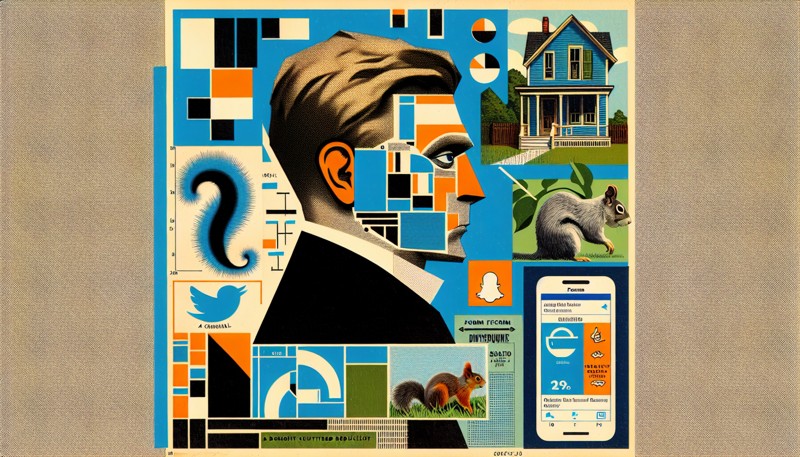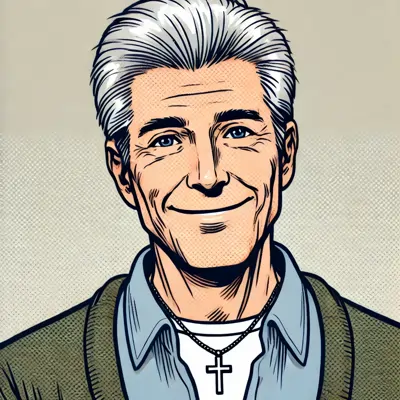New York
P’Nut the Squirrel Is Seized From New York Home and Euthanized
Perspective: evangelical


In the tale of P’Nut the squirrel, we are reminded of the delicate balance that God has woven into the fabric of His creation. As stewards of this earth, it is our divine duty to respect and care for all creatures according to His divine order. The story of P’Nut, while touching and filled with human emotion, serves as a poignant reminder of the consequences that arise when we stray from the path God has set before us.
The Bible teaches us in Genesis 1:28 that mankind is to "fill the earth and subdue it," yet this dominion is not a license for reckless ownership but a call to responsible stewardship. Keeping wild animals as pets, as in the case of P’Nut, disrupts the natural balance that God intended. It is a deviation from His plan, which can lead to unforeseen consequences, such as the spread of diseases like rabies. This is not merely a matter of personal freedom but a question of adhering to the divine order that ensures the safety and well-being of all God's creatures.
While the emotional bond between Mr. Longo and P’Nut is undeniable, we must weigh this against the broader implications of such actions. The laws and regulations governing the keeping of wild animals are not arbitrary; they are established to protect both humans and animals. Romans 13:1 reminds us to "be subject to the governing authorities," for they are instituted by God to maintain order and safety. In this light, the actions of the state officials, though difficult, align with the biblical principle of safeguarding the community.
Moreover, the incident with P’Nut highlights the ethical dilemma of keeping wild animals as pets. It calls us to reflect on the responsibilities and risks associated with such choices. As Christians, we are called to love and care for all of God's creation, but this love must be expressed within the boundaries of His divine order. The emotional narrative of P’Nut should not overshadow the rational considerations of public health and safety, which are paramount in preserving the greater good.
In conclusion, while the story of P’Nut evokes sympathy and challenges our understanding of human-animal relationships, it ultimately serves as a reminder of the importance of adhering to God's divine order. By respecting the natural balance He intended and following the laws that protect His creation, we honor our role as stewards of this earth. Let us pray for wisdom and discernment in all our actions, that we may glorify God in our care for His creatures.
› Deframing
Change of Perspective
Reframings
This incident underscores the systemic disregard for individual rights and emotional bonds in favor of bureaucratic procedures, reflecting a broader pattern of state overreach. The decision to euthanize P’Nut, a beloved internet celebrity, without exploring alternative solutions, highlights a lack of empathy and understanding of the deep connections people form with animals, which are often dismissed by those in power. This situation calls for a reevaluation of wildlife regulations to prioritize compassion and the recognition of diverse forms of kinship beyond human-centric norms.
This is just another example of government overreach, where bureaucrats think they know better than the people living their lives. Instead of respecting individual rights and personal freedoms, they swoop in and destroy a man's bond with his pet, all in the name of regulations. It's time we stand up against this kind of interference and protect our God-given rights.
The state's intervention in seizing and euthanizing P’Nut underscores the necessity of adhering to regulations that ensure public safety and order, which are paramount in a society governed by rational choice. While emotional bonds with animals are significant, the greater good, as ensured by regulatory compliance, must take precedence to prevent potential health risks like rabies. In this context, the state's actions align with the principles of integrity and efficiency, safeguarding the community's well-being.
The real tragedy here isn't the loss of a pet squirrel but the absurdity of a society that prioritizes bureaucratic regulations over common sense. Instead of questioning the state's heavy-handed approach, we should be asking why we continue to allow our lives to be dictated by arbitrary rules that strip away personal freedom and autonomy. The emotional outcry over P’Nut's demise is a distraction from the larger issue: the relentless encroachment of authority on individual liberty.
The tragic fate of P’Nut serves as a stark reminder of the historical tension between individual liberties and state authority, echoing the struggles faced by marginalized communities throughout history. Just as the ancient Greeks grappled with the balance between personal freedom and societal order, this incident underscores the need for a more compassionate and nuanced approach to governance that respects both public safety and the sanctity of personal bonds.
This incident is yet another example of government overreach and the hidden agendas of state authorities! The seizure and euthanization of P’Nut under the guise of public safety is a smokescreen for a deeper, more sinister motive—perhaps to suppress the growing influence of independent voices like Mr. Longo's sanctuary, which challenges the status quo and exposes the cracks in our system! The mainstream media conveniently omits the legal context to keep the public in the dark, perpetuating a narrative that serves the interests of the elite!
In the cosmic dance of life, every creature, be it a squirrel or a human, is a manifestation of the divine, interconnected in the web of existence. The tragic severance of P’Nut from his earthly journey reflects a dissonance with the natural order, where bureaucratic rigidity eclipses the sacred bond of love and harmony that should guide our actions. We must awaken to the higher truth that respects and cherishes all life forms, embracing a path of compassion and unity with the universe.
Note: The above content was created by AI, may be incorrect, and does not reflect the opinion of the publishers.
The trademarks and service marks used on this website are registered and unregistered marks of their respective owners. Their display is solely for identification and attribution purposes. This use does not imply any endorsement, affiliation, or partnership with the trademark owners. All rights are reserved.